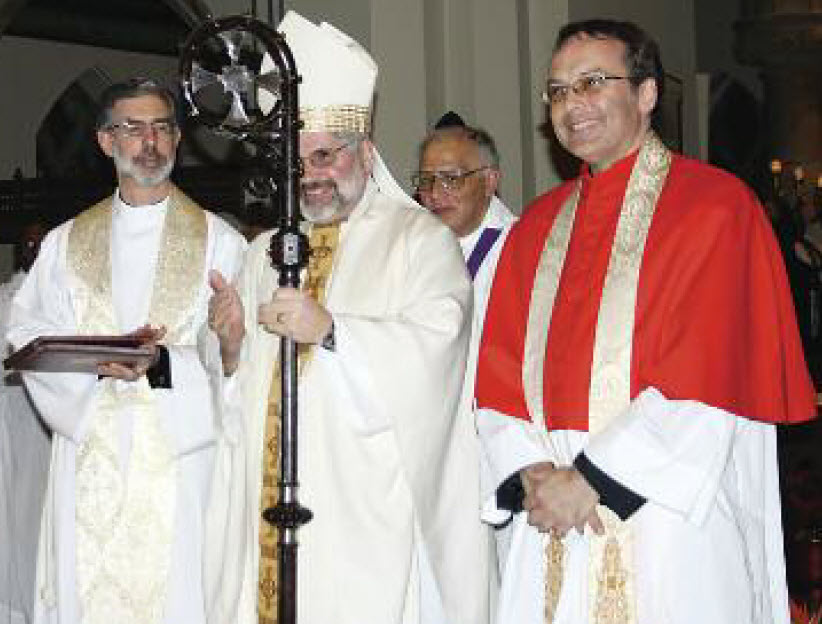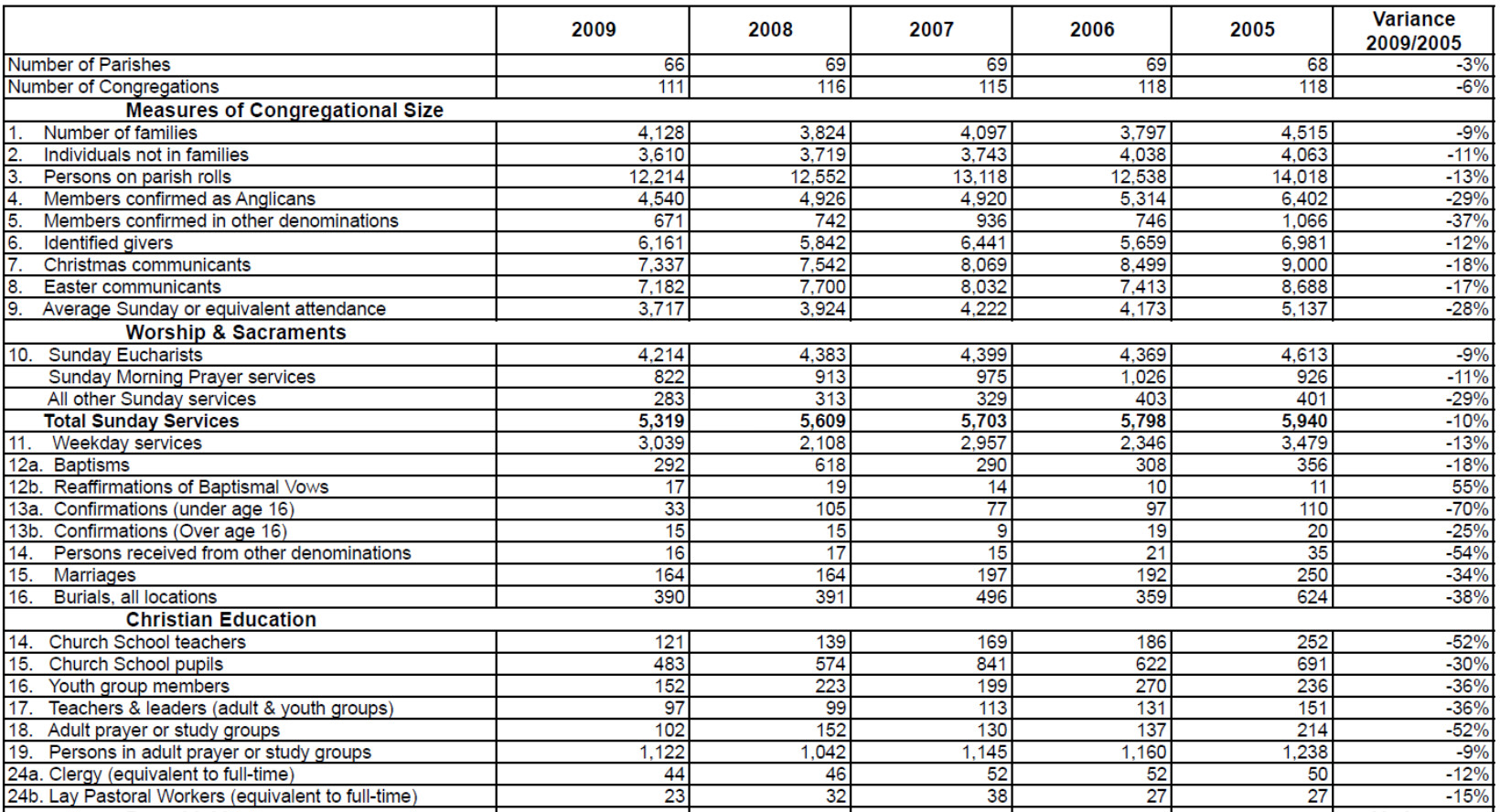The Diocese of Montreal, having lost 45,000 members between 1981 and 2001, is dwindling in much the same way as the Diocese of BC.
A consultant has been hired to find out what can be done; her report says, among other things:
As is her wont, Myrlene Boken does not recommend the closing of any churches in the Diocese of Montreal, preferring to leave the final decision up to parishioners.
But she makes no bones about considering some churches more strategic than others. Her report divides the slightly under 100 churches in the diocese into five categories.
She considers 50 churches – a little more than half – to be in strategic locations and another dozen in “second-level locations” that “round out our coverage of the mission field” but, for example, would not be a priority for replacement if they burned down or needed major repairs.
Another eight are in “tertiary” locations, generally buried in residential neighbourhoods and often dating from the 1950s and 1960s. They often benefit from dedicated local members and leaders even today, so Ms. Boken’s suggestion that the diocese not devote important resources to them could be controversial.
There are 18 “final generation” churches, generally in rural areas and some of them almost “family chapels.” They have few prospects for the future but Ms. Boken thinks it would often cause unnecessary hard feelings to force them to close. (A few of these are already on the way to being wound up by local parishioners.) Finally, there are a half-dozen tourist sites in the Laurentians that she thinks can play a useful role with summer student placements.
Although Boken does not recommend the closing of any churches, she does seem to think that it would not be a bad thing if half of them burned down. And that, after all, is what you pay a consultant for: creative thinking.
As comic relief, in the same issue of the diocesan paper, Rev. Dr. Ian Douglas, a professor at the Episcopal Divinity School in Cambridge, Mass. rambles on about “God’s mission in a changing world and church”, drawing on a Marxist political theorist for inspiration. His most profound insight is this:
In light of the new Pentecost, Christians in general, and Anglicans in particular, are beginning to ask ourselves: How much does the translatability of the Gospel and the missiological imperative of inculturation inform our worship and common life as Christians today?
Scarcely a day goes by without an Anglican acquaintance piously murmuring in my ear his concern about “missiological imperative of inculturation”.
With Professor Douglas helping to push them over the edge, I’m quite sure that the Diocese of Montreal will soon be following the example of the Diocese of BC and closing churches. Those that don’t burn down first.
Like this:
Like Loading...



